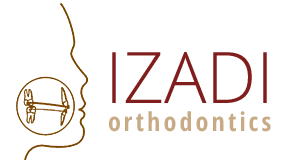Many people live with underbites, a dental condition where the lower teeth extend beyond the upper teeth. While some might think of it as a minor cosmetic issue, underbites can cause more than just aesthetic concerns. They can impact oral health, speech, and general well-being. It’s important to explore the effects of underbites and understand how they can be managed effectively.

What Causes Underbites?
Underbites can result from several factors, with genetics playing a significant role. If your parents had an underbite, you might inherit it. However, genetics is not the only cause. Childhood habits can also contribute significantly to the development of an underbite. For example, thumb sucking or extended use of a pacifier can affect the alignment of the teeth and jaw. These habits exert pressure on the jaw, leading to misalignment over time.
Jaw injuries can also lead to underbites. Accidents or trauma that affect the jaw’s structure can result in misalignment. Additionally, abnormal growth of the jawbones during developmental years can cause an underbite. Sometimes, the lower jaw grows faster than the upper jaw, leading to an imbalance. Understanding the root cause of an underbite is crucial, as it can help in choosing the right treatment. Consulting with a dental professional offers the best insight into individual cases, allowing for a tailored approach to management.
Physical Effects of Underbites
Underbites affect more than just appearance. They can lead to several physical issues that impact daily life. One common problem is difficulty chewing food. An underbite can make it hard for the teeth to align properly during chewing, leading to inefficient food processing. This can affect digestion and overall nutrition, as improperly chewed food is harder for the body to break down.
Speech problems are another concern. An underbite can affect the way the tongue moves within the mouth, leading to speech impediments. Certain sounds may be difficult to pronounce, which can affect communication. Additionally, people with underbites often experience jaw pain and headaches. The misalignment can cause strain on the jaw muscles, leading to discomfort and tension headaches.
Increased wear on teeth is also a significant issue. The misalignment causes uneven pressure on the teeth, leading to faster wear and tear. This can result in tooth sensitivity and an increased risk of cavities. These issues can worsen over time if not addressed. Early intervention is key in preventing long-term complications and maintaining oral health.
Treatment Options for Underbites
Treating an underbite often requires a multi-faceted approach. Various treatment options are available, depending on the severity of the condition. One common treatment is braces. Braces help align teeth over time by applying constant pressure, gradually moving them into the desired position. They are effective for mild to moderate underbites and can significantly improve alignment.
Invisalign offers a less noticeable alternative to traditional braces. These clear aligners are custom-made to fit the teeth and gradually shift them into place. They are removable, making them a convenient option for many people. However, they may not be suitable for severe cases.
In severe cases, jaw surgery might be necessary. This involves repositioning the jawbones to achieve proper alignment. It’s a more invasive option but can provide a permanent solution for significant misalignment. Dental appliances, such as expanders, can also adjust jaw positioning. These devices work by applying pressure to the jaw, encouraging it to grow in a certain direction.
Consulting an orthodontist is essential in determining the best treatment option. They can evaluate the severity of the underbite and recommend a personalized treatment plan. Regular follow-ups ensure the treatment remains effective and any necessary adjustments are made.
